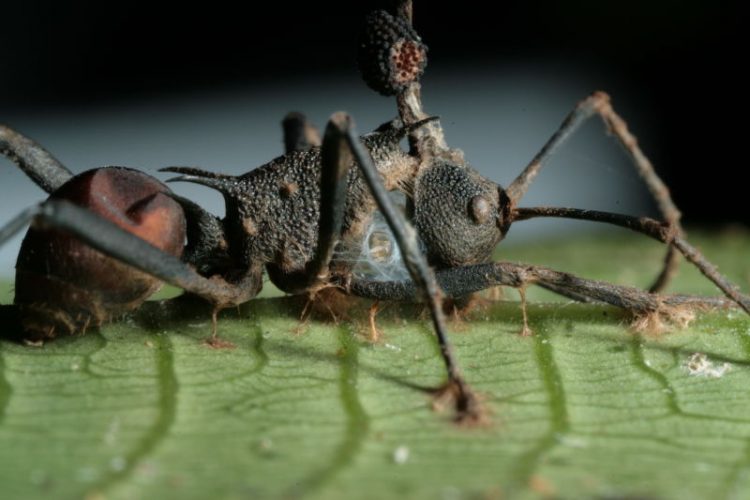A parasitic fungus, of the genus Ophiocordyceps, uses carpenter ants to complete its life cycle by turning them into zombies. The ant encounters the fungal spores while foraging and the fungus quickly infects and spreads throughout its body, hijacking the insect’s nervous system. It then forces the ant to climb vegetation, where it will clamp onto the underside of a leaf or twig, and then slowly die. The parasite then produces a spore-releasing stalk that sprouts from the cadaver’s head to discharge spores to the ground below, where more hapless ants can get infected.
Until recently scientists were uncertain as to the exact mechanisms or reasons behind this gruesome phenomenon. New research from Penn State University, however, has shed some light on the mystery. The researchers have suggested that the fungus invades muscles fibers throughout the insect’s body, which allows it to control the host’s behavior, but stays away from its brain.







